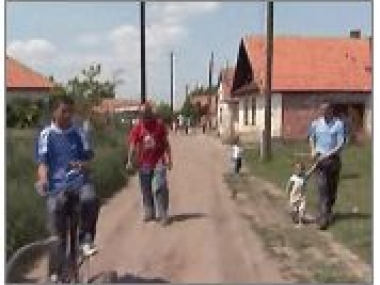New measures to improve housing conditions of Roma
Edited on
24 June 2019The European Parliament has given its green light to a proposal from the European Commission which makes it possible to use European regional funding to improve housing for marginalised communities. This measure, previously agreed by the Member States, will be particularly welcomed by the Roma population as well as by the partners of the URBACT Roma-Net project which aims to improve the integration of Roma populations. Estimated to include around 10-12 million people in Europe, the Roma population often lives in extremely deprived and segregated conditions.

Use of European regional funding to improve housing conditions of Roma communities
Structural funds legislation was previously very restrictive for housing interventions with eligibility limited to the twelve new EU Member States (with recent exceptions introduced for energy efficiency and renewable energy measures), and to renovation of existing multi-occupancy dwellings in urban areas. However, Roma populations mostly live in segregated rural areas and in single family dwellings.
The newly adopted measures will extend the use of the European Regional Development Fund (ERDF) to cover housing interventions in favour of marginalised communities in all Member States. The amendment is explicitly but not exclusively targeted to the Roma population. It covers the replacement of existing houses as well as the construction of new ones, in both rural and urban areas. ERDF funding would not apply to private ownership but only for projects implemented by public authorities.
Housing support complementing wider actions
Housing is recognised as a crucial factor for improving Roma integration. However, it should also form part of an "integrated approach" designed and implemented by the national and regional authorities to cover other issues such as education, skills development, employment, and health.
Commissioner for Regional Policy, Johannes Hahn, welcomes the decision: "The Roma community is Europe's largest minority group, which is often victim of marginalisation, deprivation and social exclusion. I welcome today's decision, which will allow regional policy to help to break the vicious circle in which these communities seem to be trapped". But he also explains that "This should be part of an overall approach covering also actions in the fields of education, health, social affairs and employment."
The Roma-Net URBACT project is part of this overall approach
The Rome-Net URBACT project fits perfectly into this overall approach advocated by the Commissioner. Launched last November, the project aims to improve the integration of Roma populations. Roma-net is facing challenges—xenophobia, poverty, exclusion from healthcare, schools and jobs—as great as the discrimination faced by the majority of Europe's Roma.
Faced with such huge challenges, the first mission Roma-Net must undertake is to build up an international exchange network that will facilitate implementing this joint policy via good practices found in Local Action Plans.
Each Roma-Net partner city has three areas to work in for their operational implementation:
- providing access to basic services such as healthcare, social services and housing;
- promoting professional integration through educating children, to break the cycle in which lack of qualifications engenders unemployment and poverty;
- creating social cooperative by and for the Roma population.
In Budapest, Project Lead Partner Gizella Mátyási also sees Roma-Net to be "a first-ever opportunity to put an end to the lack of cooperation that exists among the various local stakeholders in order to build an integrated action plan. By building a Local Support Group made up of all the public services and bodies, NGOs and Roma associations, we intend to construct the foundations of a tight group capable of leading coherent joint projects over time."
Read more:
- Special report: Roma-Net - Returning Dignity to the Roma People - URBACT Website
- Roma-Net - URBACT Website
- The European Union and the Roma - EUROPA website
Submitted by admin on
